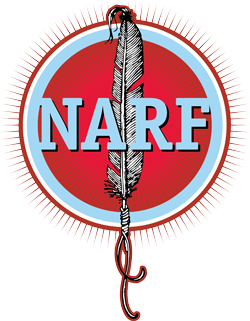
DATE: August 15, 2016
Today Alaska Attorney General Jahna Lindemuth announced that the State of Alaska will not pursue further litigation in Akiachak Native Community v. U.S. Secretary of the Interior. That case affirmed the ability of the Secretary of Interior to take land into trust on behalf of Alaska Tribes and also acknowledged the rights of Alaska Tribes to be treated the same as all other federally recognized Tribes. The State’s decision to not seek Supreme Court review ends years of protracted litigation and ushers in a new era for Alaska Tribes.
The case was brought in 2006 when four Tribes and one Native individual—the Akiachak Native Community, Chalkyitsik Village, Chilkoot Indian Association, Tuluksak Native Community (IRA), and Alice Kavairlook—brought suit challenging the Secretary of the Interior’s decision to leave in place a regulation that treated Alaska Tribes differently from other federally recognized Tribes in the continental United States. NARF and Alaska Legal Services Corporation sought judicial review of the “Alaska Exception” which barred the acquisition of land in trust in Alaska other than for the Metlakatla Indian Community or its members. The State of Alaska intervened in defense of the regulatory bar on the basis that the differential treatment was required by the Alaska Native Claims Settlement Act (ANCSA). The District Court for the District of Columbia rejected both the Secretary and Alaska’s defense of the regulatory bar and found in favor of plaintiff Tribes on March 31, 2013.
The Secretary of the Interior and the State of Alaska both initially appealed the decision to the D.C. Circuit Court of Appeals, but on May 1, 2014, the Secretary changed course and formally proposed repealing the Alaska Exception and accepting Alaska trust petitions. The Secretary explained that the Department had come to the conclusion that the importance of trust lands for tribal self-determination, self-governance, and fulfillment of the federal trust responsibility had convinced the Secretary to adopt a new regulatory policy for Alaska. The Secretary published a final rule on December 23, 2014, concluding the “removal of the Alaska Exception is supported by both legal and public policy considerations.” The final rule removed “the categorical ban and provides for the Department to make a case-by-case determination on whether to take any given property into trust.” With the Secretary’s formal repeal of the Alaska Exception, the basis for the litigation no longer existed as the case became effectively moot.
The State of Alaska nonetheless pursued its appeal before the D.C. Circuit Court of Appeals and the case was argued March 4, 2016. A two-one majority entered an Order on July 1, 2016, that directed that the appeal be dismissed for lack of jurisdiction and the case be remanded to the District Court with instructions to vacate the judgment. The State had six weeks or until August 15, 2016 to decide whether to attempt to get a rehearing or further pursue litigation before the United States Supreme Court.
Today’s announcement from the State of Alaska that it will forego further litigation ends a long history of state/tribal animosity and represents a significant policy shift from prior administrations that chose to vigorously litigate any assertion of tribal sovereignty. Governor William Walker’s decision to work with Tribes rather than against them ushers in a new era where tribal and state officials can cooperatively work together to protect the health, safety, and welfare of Alaska’s tribal member citizens.


